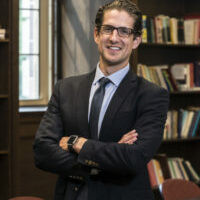
William D. Roozeboom
Affiliate Professor of Practical Theology
BA, University of Northern Iowa
MDiv, Fuller Theological Seminary
PhD, Texas Christian University
Bio
William Roozeboom is a pastoral theologian, professor, and pastoral counselor. He is an ordained minister in the PC(USA) and has served the church in various pastoral roles and works with clergy, congregations, and higher ecclesial judicatories on conflict management, staff relations, crisis intervention, restoration and renewal processes, and ongoing health and wellness.
Dr. Roozeboom has taught as an adjunct assistant professor of practical theology and pastoral care and counseling since 2011 at various institutions in Southern California and was recently on the tenure-track as Assistant Professor of Pastoral Care and Counseling at Boston College School of Theology and Ministry. Family circumstances brought him back to California in 2019. He currently teaches as an adjunct at Boston College School of Theology and Ministry, Fuller Theological Seminary, and Loyola Marymount University.
Dr. Roozeboom serves as a theological content advisor on the “Science for Seminaries: Neuroscience Education for Theology Training” project funded by the American Association for the Advancement of Science/Dialogue on Science, Religion, and Ethics (AAAS/DoSER).
Additionally, he serves as the executive director and pastoral counselor at the Avery Centre Counseling Services, providing counseling and neurotherapy services. In the clinical context, Dr. Roozeboom was certified as a pastoral counselor with the American Association of Pastoral Counselors (AAPC) and is a practitioner with ACPE. He has provided pastoral counseling services to individuals, couples, and families for over 17 years—specializing in spiritually-integrated care, clergy and faith leader counseling, questions of identity, grief and loss, and neurotherapy.
Publications
Dr. Roozeboom’s research explores the intersections of neuroscience and pastoral and practical theology. His most recent publication, “Wired for Fear: Recognizing and Countering Implicit Bias in the Brain” (Journal of Pastoral Theology, forthcoming), explores the connections between fear, implicit bias, and injustice, and illustrates how the brain’s categorization processes collude with bias to favor ‘in-group’ members and ‘other’ ‘out-group’ members. His book, Neuroplasticity, Performativity, and Clergy Wellness: Neighbor Love as Self-Care (2017) presents a clergy wellness model and outlines specific practices to induce life-giving changes to the structure and function of the brain.
